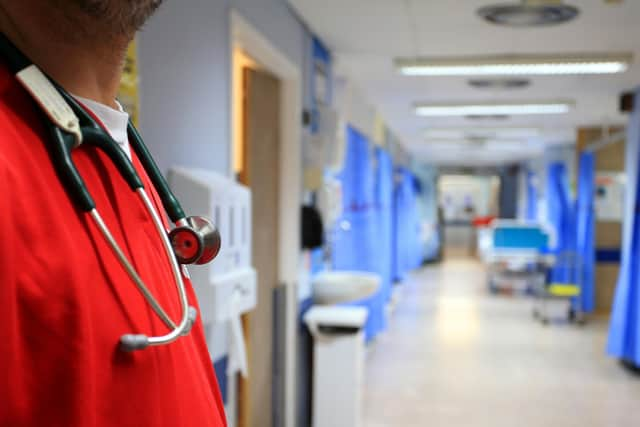Mental health detentions decrease but safeguarding concerns remain across Scotland
There were 6,569 detention episodes in Scotland in 2021-2022, which is a 2.3% drop on last year.
The data was released by the Mental Welfare Commission (MWC) on Thursday, which welcomed the decrease.
Advertisement
Hide AdAdvertisement
Hide AdBut it made clear the latest figure is in the context of a steady upward trend over the last decade of about 5.4% year-on-year, with the previous year showing a 10.5% jump in unwilling detentions for mental health reasons.
The report also raises safeguarding concerns.
It said there is a lack of consent from a mental health officer (a specialist social worker) when emergency detentions take place.
The latest data showed only 40.5% of detentions involved mental health officers in the last year, the lowest level in 10 years, according to the report.
In the Greater Glasgow and Clyde health board area, the figure dropped to only 22%.


Arun Chopra, medical director at MWC, said that is “unacceptable”, and he voiced concern about the way emergency detentions are taking place.
The report also pointed to “a clear association” between mental ill health and social deprivation.
It found 39% of all emergency detentions happened to people from the 20% most deprived areas of Scotland.
Dr Chopra said: “We remain concerned over the way emergency detentions are taking place.
Advertisement
Hide AdAdvertisement
Hide Ad“Consent of a mental health officer (MHO) is an important safeguard and should happen every time a person is detained using the [Mental Health] Act.
“For emergency detentions, consent from an MHO has fallen below half for all such detentions for the last two years in succession, with considerable variations in different parts of Scotland.
“This is not acceptable. People should receive this safeguard, where practicable, no matter where they live in the country.”
There are three different ways people can be detained under the Act – emergency detention, short-term detention, or through a compulsory treatment order.
For all types of orders the rate of detention was higher among males than females, with the smallest difference for emergency detention certificates (EDCs) – where the rate for females was 58.1 per 100,000 compared to 60.5 for males.
Age-standardised rates of detention were highest in the oldest age group (85+ years), apart from EDCs where the highest rate for females was in the age group 18 to 24.
Kevin Stewart, minister for mental wellbeing, said poverty is the “single biggest driver of poor mental health and there is a clear relationship between wider socio-economic inequality and mental health”.
“We recognise the effects of the pandemic are likely to be felt more severely by communities and individuals who experience higher levels of deprivation,” he said.
Advertisement
Hide AdAdvertisement
Hide Ad“This is why we have committed to strengthening alignment of work around mental health, poverty and reducing inequalities and aiming to reduce the need for clinical interventions.
“Our mental health law is based on rights and principles and offers protection for patients where compulsory treatment is necessary.
“We will continue to work with the Mental Welfare Commission and stakeholders to ensure these orders are used correctly, and to promote patients’ rights more generally.”
Comments
Want to join the conversation? Please or to comment on this article.